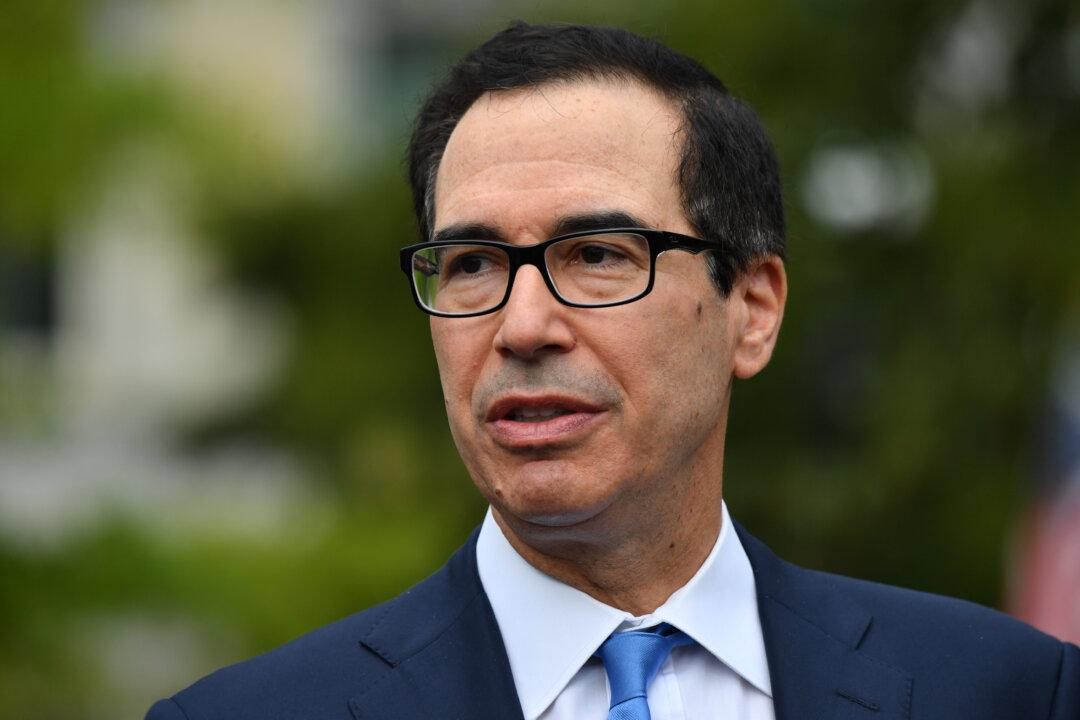Treasury Secretary Steven Mnuchin said he does not expect that the coronavirus will cause a full-blown recession, predicting that the economy will move swiftly through a temporary slowdown and into a big market rebound.
Asked by ABC News on whether the U.S. economy would tip into a recession, Mnuchin said, “I don’t think so. The real issue is not the economic situation today. … This is a unique situation. We are going to have a slowdown. Later in the year economic activity will pick up as we confront this virus.”





